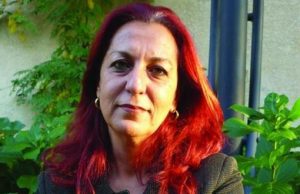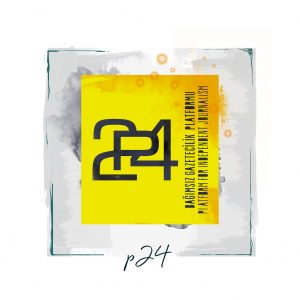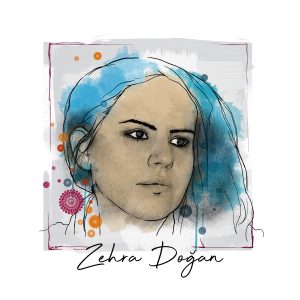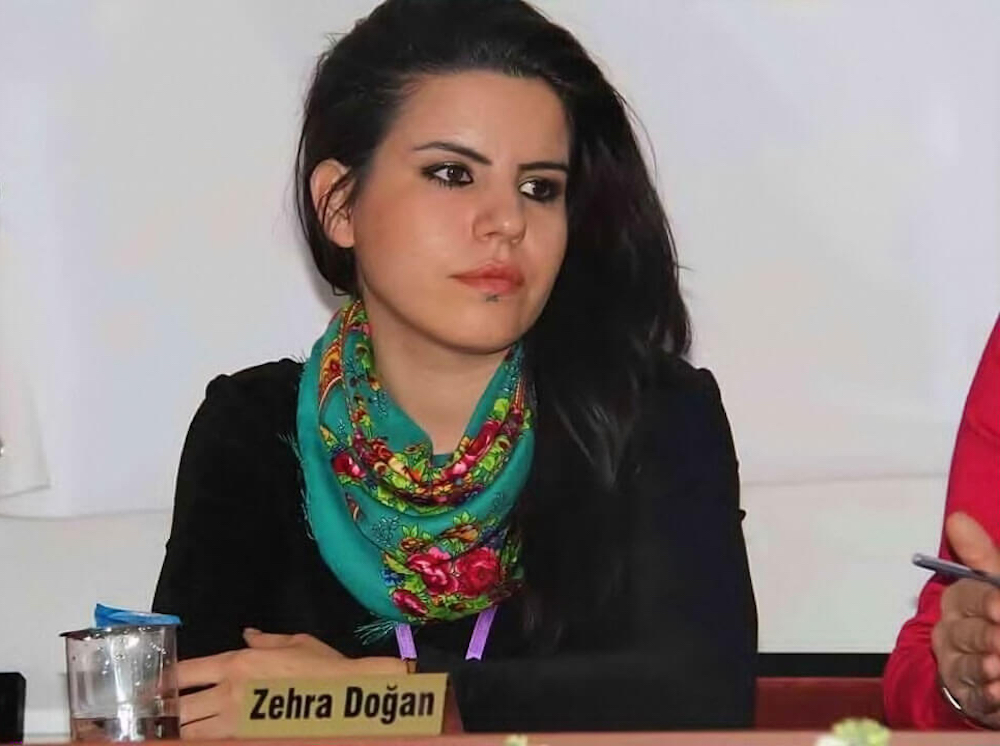Index relies entirely on the support of donors and readers to do its work.
Help us keep amplifying censored voices today.
[vc_row][vc_column][vc_column_text]UPDATE: Prof. Zübeyde Füsun Üstel, whose 1 year and 3 months prison sentence was upheld on 25 February 2019, is due to begin her prison sentence within ten days, Frontline Defenders reported on 30 April 2019.[/vc_column_text][vc_column_text]

Zübeyde Füsun Üstel
A Turkish academic, who was given a 15-month jail sentence for signing a petition calling for peace in south-east Turkey, has had her sentence upheld and now faces prison. She is likely to be the first academic to be imprisoned for signing the petition.
Zübeyde Füsun Üstel’s 15-month jail sentence, originally imposed in April 2018 for signing a petition drafted by Academics for Peace, was upheld by the Turkish Court of Appeals on 25 February 2019. Üstel is a retired professor from Galatasaray University in Istanbul.
This decision by the appellate court means that she is in danger of being imprisoned very soon.
The peace petition — We Will Not Be a Party To This Crime — was initially signed by 1,128 academics and grew to 2,020 in the weeks after it was released in January 2016. Since then, the signatories have been subjected to a range of actions against them, including criminal and administrative investigations, detention, dismissals and revocation of their passports. As of December 2017, more than 400 academics have been dismissed and hundreds of PhD students have lost their scholarships.
Academics for Peace is an organisation of university professors and graduate students who drafted and launched the petition, which denounced the human rights violations committed by the government in the Kurdish regions of Turkey, demanded access to these areas for independent national and international observers, and called for a lasting peace to be secured.
“I think Professor Fusun Üstel’s case is a new illustration of the criminalisation of free speech in present-day Turkey,” said Noemi Levy-Aksu, an academic for peace whose case is still pending.
Üstel was the first academic to refuse the legal provision the courts offer when prison sentences are less than two years. The provision involves suspending the pronouncement of judgment for a period of five years, during which the defendant is supposed to refrain from committing further “crimes”. Since what constitutes a crime in Turkey can be arbitrarily changed or determined by the political establishment, this provision aims to discipline defendants by placing them under supervision by the government. However, the advantage to the provision is that the suspect is left with no criminal record, barring their good behavior.
In her court hearing in April 2018, Üstel refused the offer of a suspension and was consequently sentenced to 15 months in prison. She appealed, but it was rejected on 25 February. She could become the first academic to be imprisoned since the trials began in December 2017. Nine other academics have refused the suspension provision and are waiting to appear before the court of appeals, according to the Academics for Peace website.
Following the confirmation of Üstel’s sentence, new initiatives have been started to raise awareness about her and all of the other Academics for Peace cases.
“An open letter has been endorsed by Academics for Peace-US and UK, academic and human rights organisations and more than 1500 academics from all around the world. Other initiatives are ongoing, especially in Germany, France, the US and the UK, where many academics from Turkey are now based,” said Levy-Aksu.
Investigations were opened by the government individually against each petition signatory on charges of “conducting propaganda for a terrorist organisation.” This is the charge professor Üstel is currently facing, as per the Article No. 7/2 of the Anti-Terror Law No. 3713.
Some judges, including one dissenting judge in Üstel’s appeal case, believe the academics should not be tried under the anti-terror law on the charge of propagandizing for a terrorist organisation. Instead, they argue that Üstel’s and other cases should be considered as per the Article 301 of the Turkish penal code on the charge of “degrading the state of the republic of Turkey”.
“From the beginning, the trial of the Academics for Peace relied on very shaky grounds, both in terms of procedure and substance. The inconsistency of the decisions taken by the different courts show the arbitrariness of the process. Verdicts have been erratic and varied from 15 to 36 months imprisonment,” said Levy-Aksu.
Almost 600 of the signatories are currently undergoing trials on grounds of engagement in “propaganda for a terrorist organisation.”
Üstel published a series of articles in Turkey-based and international journals of social sciences. Her articles have mostly focused on the history of Turkey, nationalism and issues of identity.
Since its founding in 2012, Academics for Peace has organised different actions to highlight attacks on the Kurds in south-east Turkey, and to call for the Turkish government to change its policy towards the Kurds. In 2012 it issued a statement showing support for Kurdish prisoners’ demands for peace in Turkey. This statement was signed by 264 academics from over 50 universities.
Since January 2016 when they published the peace petition, the Academics for Peace case has remained a symbol of the ongoing crackdown on the right to protest and speak out against the government in Turkey.
“In the current circumstances this will highly depend on governmental policy. The other venue to challenge the decision is the European Court of Human Rights, before which several applications have already been brought,” said Levy-Aksu.[/vc_column_text][/vc_column][/vc_row][vc_row][vc_column][vc_basic_grid post_type=”post” max_items=”12″ style=”load-more” element_width=”6″ grid_id=”vc_gid:1556799978592-db3cfbd5-6c56-0″ taxonomies=”7355, 8607″][/vc_column][/vc_row]
[vc_row][vc_column][vc_video link=”https://youtu.be/AYDg8H16K0s”][vc_column_text] P24 (Platform for Independent Journalism) is a civil society organisation with an ambitious program to neutralise censorship in Turkey — a country in which speaking freely courts fines, arrest and lengthy jail sentences.
P24 (Platform for Independent Journalism) is a civil society organisation with an ambitious program to neutralise censorship in Turkey — a country in which speaking freely courts fines, arrest and lengthy jail sentences.
Turkey has become increasingly hostile to dissent in recent years. It recently replaced the emergency rule that started after the 2016 failed putsch with a presidential system in which executive powers are often unchecked. The country is the world’s largest jailer of journalists: some 183 journalists and media workers are in prison at the time of writing, including many in pre-trial detention.
But journalists are not the only ones in danger: academics, artists and ordinary Turks expressing dissent have faced legal sanctions, economic pressure, and even arrests. In a famous case, a woman was detained after being overheard criticising the Turkish president – while talking to a friend on a bus. Even some of P24’s workers have been detained, although not for their work with the organisation.
What makes P24 impressive is that it has been able to mount an ambitious programme even in such a high-risk environment, providing a glimmer of hope for civil society in Turkey. It has created a set of mutually reinforcing activities to promote free expression and fight to fill the democratic deficit.
Its legal team defends journalists and academics who are on trial because they exercised their right to free expression. P24 does its legal work on a pro bono basis, hoping to set important precedents in the Turkish legal system.
P24 also undertakes coordinated social media and public advocacy that include live-tweeting from courtrooms and campaigning through an array of websites, newsletters and exhibition spaces. One of its efforts — Expression Interrupted – is a website and newsletter tracking the progress of freedom of expression cases throughout the country.
P24 also provides safe spaces for freedom of expression. Susma24 is an outreach programme in which it brings together local bar associations and artistic communities. Through K24 and KIRAATHANE, its newly launched literature house, P24 also offers freelance opportunities and visibility to those excluded from the mainstream by the government’s ongoing stifling of dissent.
P24, one of Turkey’s most active civil society organisations secured the release of a young photographer, Cağdaş Erdoğan. While Erdoğan has been able to exhibit in Europe, no Turkish gallery wanted to show his photography – so P24 organised an exhibition in its new Literature House “KIRAATHANE”, one of its latest initiatives. In 2018, P24 also published three books on journalism, innovation and media freedom in its media library.[/vc_column_text][vc_separator][vc_row_inner][vc_column_inner width=”1/2″][vc_single_image image=”104691″ img_size=”full” onclick=”custom_link” link=”https://www.indexoncensorship.org/2019/01/awards-2019/”][/vc_column_inner][vc_column_inner width=”1/2″][vc_column_text]
Index on Censorship’s Freedom of Expression Awards exist to celebrate individuals or groups who have had a significant impact fighting censorship anywhere in the world.[/vc_column_text][/vc_column_inner][/vc_row_inner][vc_separator][/vc_column][/vc_row][vc_row][vc_column][vc_basic_grid post_type=”post” max_items=”4″ element_width=”6″ grid_id=”vc_gid:1552057651002-8eabcc7d-44fd-4″ taxonomies=”26925″][/vc_column][/vc_row]
[vc_row][vc_column][vc_video link=”https://youtu.be/HVXGKrAjRnE”][vc_column_text] Released from prison on 24 February 2019, Zehra Doğan is a Kurdish painter and journalist who, during her imprisonment, was denied access to materials for her work. She painted with dyes made from crushed fruit and herbs, even blood, and used newspapers and milk cartons as canvases.
Released from prison on 24 February 2019, Zehra Doğan is a Kurdish painter and journalist who, during her imprisonment, was denied access to materials for her work. She painted with dyes made from crushed fruit and herbs, even blood, and used newspapers and milk cartons as canvases.
Doğan used to work in Nusaybin, a Kurdish town caught in the crossfire between Turkey and Kurdish militants. She moved to the town to report on the conflict in 2016 and edited Jinha, a feminist women-only Kurdish news agency reporting in the Kurdish language.
When she realised her reports were being ignored by mainstream media, Dogan began painting the destruction in Nusaybin and sharing it on social media, and her art became important evidence of the violence in the town.
Doğan focused on striking, dark political scenes, but also on colourful scenes of traditional Kurdish life. In her most famous artwork, she adapted a Turkish army photograph of the destruction of Nusaybin, depicting armoured vehicles devouring civilians. In July 2016, she was arrested where witnesses testified in court that she was a member of an illegal organisation.
Although her trial ended with no sentencing, Doğan remained in prison until December 2016. In March 2017, Doğan was acquitted of “illegal organisation membership” but sentenced to almost three years for “propaganda” – essentially posting her painting on social media.
Her persecution is not isolated and takes place amid a crackdown on Turkish civil society. Using emergency powers and vague anti-terrorism laws, the authorities have suspended or dismissed more than 110,000 people from public sector positions and arrested more than 60,000 people between the attempted coup of July 2016 and the end of the same year.
Together with media and academic freedom, artistic freedom has come under attack. As a result, according to the Economist: “Artists have become more cautious, as have galleries and collectors.” Doğan’s situation was noticed by many artists in the world: Banksy painted a huge mural for her in New York and Ai Wei Wei sent a letter to her.
During her time in prison Doğan continued to produce journalism and art. She collected and wrote stories about female political prisoners, reported human rights abuses, and painted despite the prison administration’s refusal to supply her with art materials.
Doğan produced her own paint from food, drinks, and even her menstrual blood. She did not have brushes but used feathers of birds that fell into the prison yard. Security guards seized and destroyed the paintings she tried to send out of prison and punished her with a ban on communications with the outside world. She also gave drawing classes to other inmates and taught them how to make their own paintbrushes.[/vc_column_text][vc_separator][vc_row_inner][vc_column_inner width=”1/2″][vc_single_image image=”104691″ img_size=”full” onclick=”custom_link” link=”https://www.indexoncensorship.org/2019/01/awards-2019/”][/vc_column_inner][vc_column_inner width=”1/2″][vc_column_text]
Index on Censorship’s Freedom of Expression Awards exist to celebrate individuals or groups who have had a significant impact fighting censorship anywhere in the world.[/vc_column_text][/vc_column_inner][/vc_row_inner][vc_separator][/vc_column][/vc_row][vc_row][vc_column][vc_basic_grid post_type=”post” max_items=”4″ element_width=”6″ grid_id=”vc_gid:1551975581366-1308b39d-3e20-6″ taxonomies=”26925″][/vc_column][/vc_row]
[vc_row][vc_column][vc_column_text]
Artist Zehra Doğan, a Kurdish painter and journalist, has been released from a Turkish prison. Dogan, originally sentenced to two years, 9 months and 22 days on 24 March 2017, was tried over a painting depicting the destruction in the town of Nusaybin and sharing it on social media which was deemed by the courts as “terrorist propaganda”.
While in prison, Doğan, who has been nominated for a 2019 Freedom of Expression Awards in Arts, continued to write and produce art despite not having access to materials. The artist began using food and even her own blood as paint and letters, milk cartons or newspapers as her canvas. Doğan had also founded JINHA, Turkey’s first women’s news agency, which was shut down in 2016 under Statutory Decree No. 675 along with 180 other media outlets in the wake of the failed coup.
“We are very pleased to hear about her release and that she can rejoin her loved ones,” says CEO of Index on Censorship, Jodie Ginsberg. “We admire her strength and her perseverance to keep her art alive despite imprisonment and conditions. Her detention was unjust and we hope that there is justice for her and many others who continue to be arbitrarily detained in Turkey.” [/vc_column_text][vc_row_inner][vc_column_inner width=”1/4″][vc_single_image image=”104529″ img_size=”full” onclick=”custom_link” link=”https://www.indexoncensorship.org/2019/01/awards-2019/”][/vc_column_inner][vc_column_inner width=”3/4″][vc_column_text]
Zehra Doğan, a Kurdish painter and journalist, has been shortlisted in the Arts category for the Index Awards 2019. Find out more.[/vc_column_text][/vc_column_inner][/vc_row_inner][/vc_column][/vc_row][vc_row][vc_column][vc_basic_grid post_type=”post” max_items=”4″ element_width=”6″ grid_id=”vc_gid:1551005624780-09a05fdd-dde0-1″ taxonomies=”55″][/vc_column][/vc_row]